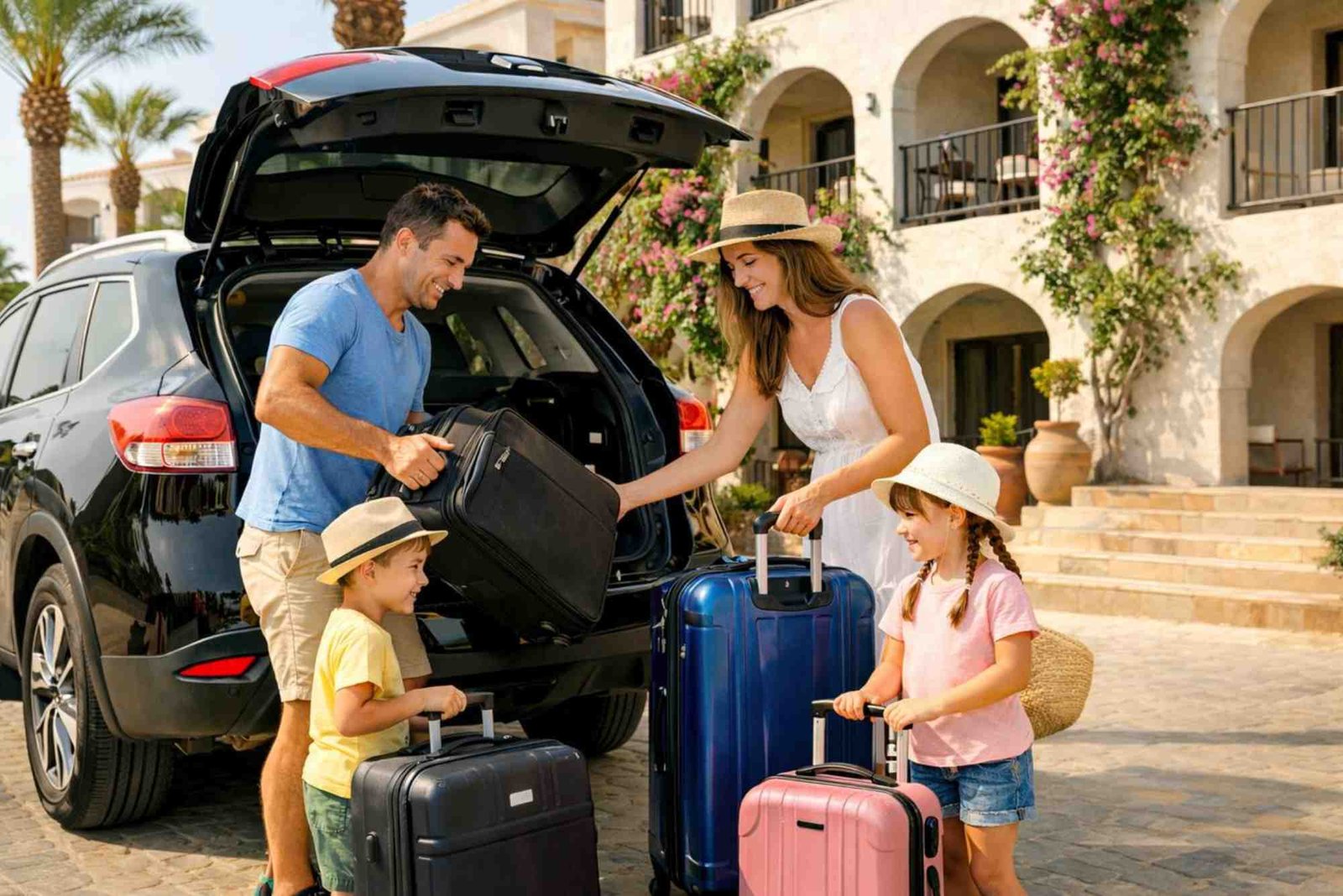Introduction
Traveling is one of life’s most rewarding experiences. It opens doors to new cultures, foods, and perspectives that enrich the soul. However, successful travel requires preparation, knowledge, and a little flexibility. Whether you’re planning your first solo trip or a family vacation, understanding the essentials can make all the difference. In this Complete Guide to Travel — What You Need to Know, we’ll cover every detail you need to plan a smooth, enjoyable, and unforgettable journey. From budgeting and packing to safety and cultural awareness, this guide will equip you with everything you need to become a confident traveler.
The Importance of Travel in Modern Life
Travel isn’t just about exploring new destinations—it’s about discovering yourself. When you step outside your comfort zone, you experience personal growth, independence, and adaptability. Meeting people from different backgrounds broadens your worldview, allowing you to appreciate diversity and develop empathy. Beyond leisure, travel contributes to mental well-being. Studies show that traveling can reduce stress, improve creativity, and even boost happiness levels. It’s no wonder millions of people view travel as an essential part of modern living.
Planning Your Trip: The Foundation of a Great Journey
A great trip begins long before you board the plane. Planning helps you stay organized and prevents last-minute chaos. Start by deciding on the type of trip you want—adventure, relaxation, cultural, or business. Once that’s clear, set a budget that includes flights, accommodation, meals, transport, and emergency funds. Online travel tools can help compare prices and find the best deals. Researching your destination is equally important. Learn about local customs, currency, climate, and language. For more in-depth insights and inspiration, you can always read our travel overview, which covers trending destinations and travel tips for every budget.
Booking Smart: Flights, Hotels, and Experiences
When booking flights, flexibility is key. Prices fluctuate depending on the season, day of the week, and time of booking. Use incognito mode when searching, as repeated searches can sometimes increase prices due to cookies. Consider alternative airports or flight routes for cheaper options.
Accommodation choices vary—from luxury hotels to budget hostels and short-term rentals. Check reviews, photos, and locations before confirming. Booking platforms often provide cancellation policies, which are essential if plans change. As for experiences, try mixing popular tourist attractions with local, lesser-known gems. This balance helps you avoid crowds and connect more authentically with the destination.
Packing Like a Pro
Packing can make or break a travel experience. The key is to pack smart, not heavy. Begin with a checklist based on the weather and activities you plan to do. Opt for versatile clothing items that can be mixed and matched. Don’t forget essentials like a travel adapter, power bank, and basic first-aid kit. Packing cubes can help organize your suitcase efficiently, saving space and time when unpacking. Remember to keep important documents—passport, tickets, and travel insurance—in a secure and easily accessible place. Minimalism is your best travel companion; the lighter you travel, the freer you feel.
Navigating Airports and Transportation
Airports can be overwhelming, especially for new travelers. Arrive early, check in online, and keep digital copies of your documents. Understanding baggage rules beforehand avoids unnecessary fees. Once you land, familiarize yourself with local transport options. Many cities offer reliable public transit systems, ride-sharing apps, or car rentals. If you’re exploring rural areas, consider hiring a local driver or guide for safety and convenience. Always keep a local SIM card or Wi-Fi access to use maps and translation apps on the go.
Staying Safe Abroad
Safety should always be a top priority when traveling. Before leaving, register with your embassy and share your itinerary with family or friends. Avoid carrying large amounts of cash; instead, use cards or secure mobile payment options. Stay alert in crowded areas to prevent pickpocketing. Learn basic local phrases for emergencies, such as asking for help or directions. Also, be aware of common scams targeting tourists and research the safest neighborhoods to stay in. Travel insurance is non-negotiable—it covers medical emergencies, lost luggage, and trip cancellations, offering peace of mind throughout your journey.
Experiencing Local Culture
Immersing yourself in local culture is what makes travel truly meaningful. Respect local customs, dress codes, and traditions. Food is one of the best ways to connect with culture, so be adventurous and try local dishes. Attend festivals, visit museums, and interact with residents. Engaging respectfully creates positive cultural exchange and leaves lasting memories. Reading about your destination’s history and traditions from trusted sources like Wikipedia can help you gain deeper insights and appreciation.
Sustainable and Responsible Travel
As travelers, we have a responsibility to protect the environments and communities we visit. Sustainable travel means minimizing your carbon footprint and making conscious choices. Opt for eco-friendly accommodations, reduce plastic waste, and support local businesses. Choose walking or biking over taxis when possible. Respect wildlife by not engaging in unethical animal tourism. Responsible travel ensures that future generations can continue to enjoy the world’s beauty while supporting the people who call these destinations home.
Managing Your Travel Budget
Financial planning can turn an average trip into a stress-free experience. Start with a clear spending plan that includes all major expenses. Use budgeting apps to track your costs in real-time. Look for local eateries and free attractions to save money without compromising experience. Consider traveling during the shoulder season—right before or after peak tourist periods—to enjoy lower prices and fewer crowds. Always keep a small emergency fund, especially for international travel, in case of flight changes or medical needs.
Staying Healthy While Traveling
Health often gets overlooked in travel planning, but it’s crucial for a successful trip. Schedule a medical check-up and ensure you have necessary vaccinations before departure. Stay hydrated, eat balanced meals, and get enough rest despite time zone changes. Carry basic medications for headaches, allergies, or stomach issues. Wash your hands frequently and use sanitizer, especially in public areas. Listen to your body—if you feel unwell, rest instead of pushing through your itinerary. Prioritizing your health ensures that you return home refreshed, not exhausted.
Capturing and Sharing Your Journey
In today’s digital age, documenting travel is almost as enjoyable as the experience itself. Take photos and videos, but don’t forget to be present. Sometimes, the best memories are the ones not captured on screen. Journaling or blogging about your travels can help others while preserving your own experiences. If you enjoy writing, explore related blog resources to learn how to share your travel stories effectively and even turn them into a personal brand.
Common Travel Mistakes to Avoid
Even seasoned travelers make mistakes. Overpacking, ignoring local etiquette, or not checking visa requirements are common pitfalls. Failing to back up photos or relying solely on digital copies of documents can also cause stress. Avoid rushing through destinations—quality of experience matters more than quantity. Lastly, not having travel insurance is one of the biggest mistakes. Preparing for unexpected situations ensures that your trip remains enjoyable, even when challenges arise.
The Future of Travel
The travel industry is evolving rapidly, with technology playing a central role. Artificial intelligence, virtual reality tours, and digital nomad visas are reshaping how we explore the world. Sustainable tourism and remote work opportunities are also influencing travel choices. In the coming years, travelers will focus more on meaningful experiences, cultural immersion, and environmental awareness rather than mass tourism. The future of travel is about connection—both with places and people.
(FAQs)
What is the best time to travel internationally?
The best time depends on your destination. Generally, shoulder seasons—spring and autumn—offer good weather and fewer crowds.
How do I choose a travel destination?
Consider your interests, budget, and travel style. Research weather, culture, and visa requirements before finalizing.
How can I save money while traveling?
Book flights early, use budget accommodations, eat at local restaurants, and explore free attractions.
Is travel insurance really necessary?
Yes. It protects you from financial loss due to emergencies, cancellations, or medical issues abroad.
How do I stay connected while traveling internationally?
Buy a local SIM card or portable Wi-Fi device to access maps, translations, and communication apps.
Traveling is an art—a combination of curiosity, courage, and preparation. Whether you’re exploring your own country or venturing across continents, this Complete Guide to Travel — What You Need to Know empowers you to travel smarter, safer, and more meaningfully. Every journey teaches something new, shaping you into a global citizen with open eyes and an open heart. So pack your bags, embrace the unknown, and start exploring. The world is waiting for you.









